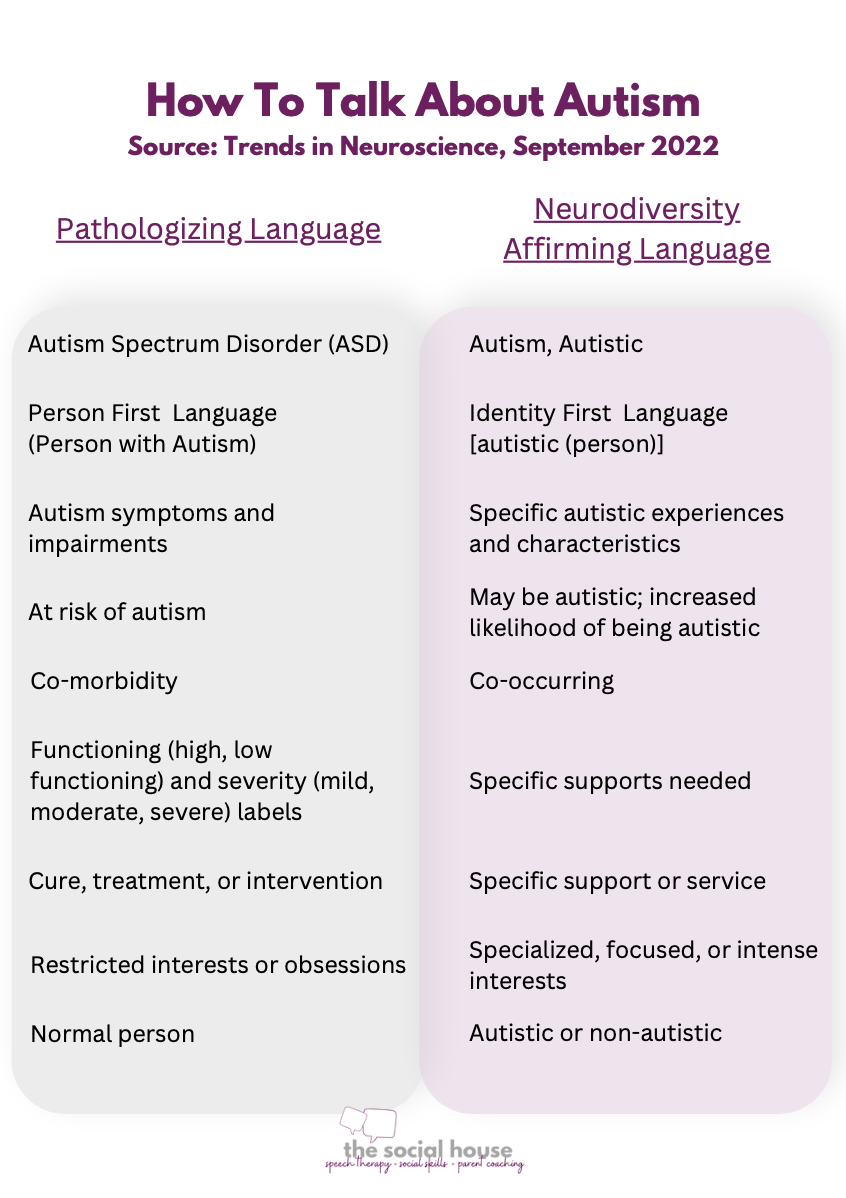Anyone who has been hurt by someone’s words knows the power they hold. If your mood was boosted by a passing compliment, you know the power of words as well. The mental and emotional impact of language is tangible. Adults often have conversations with one another about their students or clients while they are right there within earshot. If there has not been an identified hearing loss, I assure you that they are listening. And their peers are listening. And their siblings. And fellow staff or team members. It is crucial that we re-evaluate the language we use around our children; both for their sake and ours.
The Impact
Social Connection: Research suggests that overhearing even a brief negative message about a particular group can affect a child’s attitude about that particular group. Children are likely to take on the biases of their adults when they overhear their thoughts and feelings. This can have a very real and direct effect on a neurotypical child’s attitude toward different learners and different classes within their school. On the contrary, the sooner that we can normalize different situations, the more they will become engaged in and accepting of diversity. This may also affect the way children within a classroom think about their peers; the way aunts, uncles, and cousins treat their autistic family during family gatherings; and the way a child feels about themselves.
Self-esteem: By the age of 5, children are thought to have already developed self-esteem. This is when they are likely to start listening to what others say and form opinions based on their personal interactions with others. The language a child overhears about themselves directly impacts their self-talk. Positive self-talk decreases symptoms of anxiety and promotes effective coping strategies for emotional/mental stress. Overhearing negative language between adults can also negatively affect the relationship with those adults; directly shaping the child’s sense of safety and trust.
Life Expectancy: One psychologist suggests that social integration and close relationships may be the two most influential indicators for a long life. When negative language infiltrates our children’s brains, the possibility of building connections and becoming more deeply integrated into the community becomes less likely.
Adult Perception: The use of negative language can also have a grave impact on adult perspectives. Constant use of phrases such as, “they can’t” or “they won’t,” will quickly lead families and support staff to believe this is true and that there is no hope in creating change for these children. This leads to burn out, low motivation, and a strong feeling of helplessness.
How Do I Change It?
The change comes from a mind shift, which will in turn transform the words you choose to use. Emphasis should be placed on the supports and modifications within the environment that are required for the child to grow and succeed. A neurodivergent brain cannot sustainably and effectively learn how to thrive in a primarily neurotypical world without providing space for these modifications.
Some specific ideas about Autism are listed below:
What Is Positive Self-Talk? Medical News Today. March 2022.
Overhearing Brief Negative Messages Has Lasting Effects on Children's Attitudes Toward Novel Social Groups. Conder & Lane. 2021.
The Secret to Living Longer May Be Your Social Life. Susan Pinker. 2017.
Implicit Measures for Preschool Children Confirm Self-Esteem's Role in Maintaining a Balanced Identity. Cvencek, Greenwald & Metzoff. 2016.


